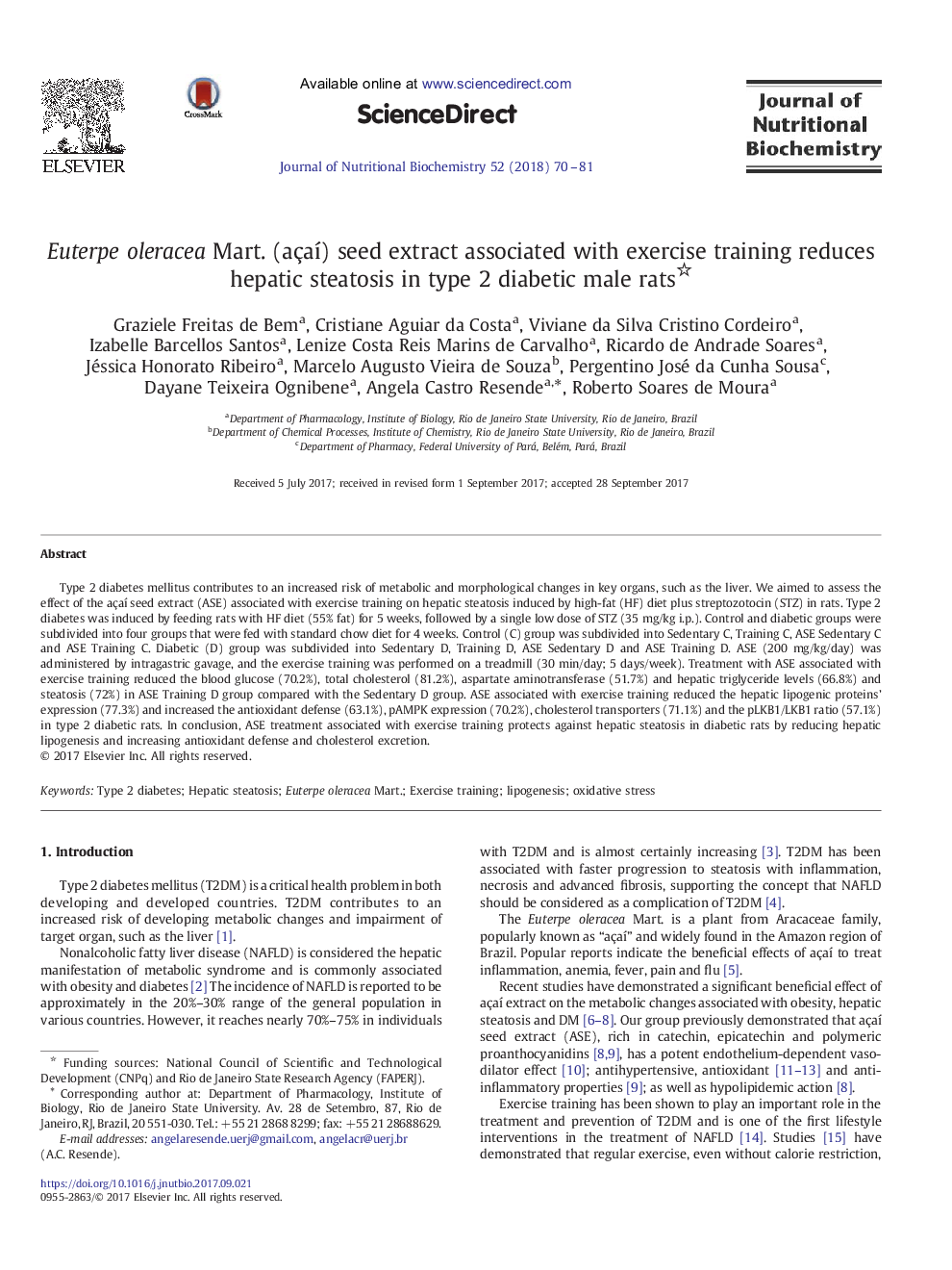| Article ID | Journal | Published Year | Pages | File Type |
|---|---|---|---|---|
| 8336445 | The Journal of Nutritional Biochemistry | 2018 | 12 Pages |
Abstract
Type 2 diabetes mellitus contributes to an increased risk of metabolic and morphological changes in key organs, such as the liver. We aimed to assess the effect of the açaà seed extract (ASE) associated with exercise training on hepatic steatosis induced by high-fat (HF) diet plus streptozotocin (STZ) in rats. Type 2 diabetes was induced by feeding rats with HF diet (55% fat) for 5 weeks, followed by a single low dose of STZ (35 mg/kg i.p.). Control and diabetic groups were subdivided into four groups that were fed with standard chow diet for 4 weeks. Control (C) group was subdivided into Sedentary C, Training C, ASE Sedentary C and ASE Training C. Diabetic (D) group was subdivided into Sedentary D, Training D, ASE Sedentary D and ASE Training D. ASE (200 mg/kg/day) was administered by intragastric gavage, and the exercise training was performed on a treadmill (30 min/day; 5 days/week). Treatment with ASE associated with exercise training reduced the blood glucose (70.2%), total cholesterol (81.2%), aspartate aminotransferase (51.7%) and hepatic triglyceride levels (66.8%) and steatosis (72%) in ASE Training D group compared with the Sedentary D group. ASE associated with exercise training reduced the hepatic lipogenic proteins' expression (77.3%) and increased the antioxidant defense (63.1%), pAMPK expression (70.2%), cholesterol transporters (71.1%) and the pLKB1/LKB1 ratio (57.1%) in type 2 diabetic rats. In conclusion, ASE treatment associated with exercise training protects against hepatic steatosis in diabetic rats by reducing hepatic lipogenesis and increasing antioxidant defense and cholesterol excretion.
Keywords
Related Topics
Life Sciences
Biochemistry, Genetics and Molecular Biology
Biochemistry
Authors
Graziele Freitas de Bem, Cristiane Aguiar da Costa, Viviane da Silva Cristino Cordeiro, Izabelle Barcellos Santos, Lenize Costa Reis Marins de Carvalho, Ricardo de Andrade Soares, Jéssica Honorato Ribeiro, Marcelo Augusto Vieira de Souza,
